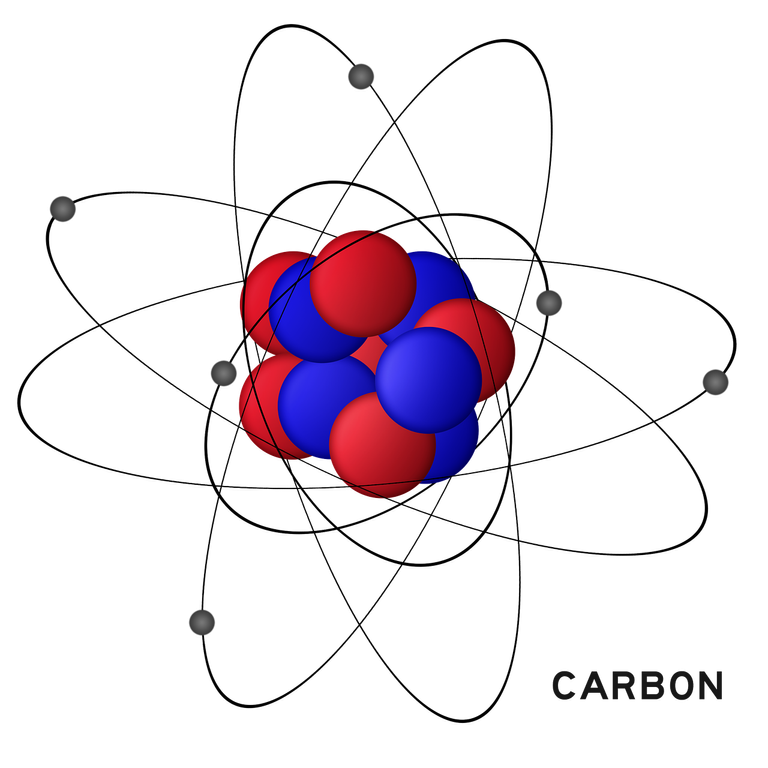A Molecular Perspective of Elements Responsible of Life
From the tiniest single-celled organisms to the complex multicellular structures we inhabit, the thread of life weaves a common tapestry among all living beings. The words of Jacques Monod, unraveling the genetic control of enzymes and virus synthesis, echo with profound truth: "All that is true for E.coli, is true for the Elephant."
While his words might look like that of a person who doesn't have an idea of what is being said, in reality when we look at the molecular composition of both unicellular and multicellular organisms, we share certain things in common, and these things work together to keep us all alive. We share a lot when it comes to our biochemical building blocks that forms our DNA and proteins.
In other for us to be alive in a molecular level, we all need certain elements. Before I discuss the elements, it is important to state that we have about 118 known elements as at today, and these element table known as the periodic table is often updated depending on new research and results. Before 2016, the total element was at 114 elements but in 2016, it was updated. We have some of these elements that are the basics of life, and in this post, we will be discussing it.
We use this for life, and are require them for energy just that while we need more energy than unicellular organisms, we still follow the same principle with key elemental players which are Carbon, Hydrogen, Nitrogen, Oxygen, Phosphorus, and Sulfur. Carbon is the number 6 element and it is the most common element on earth and the most important in live. With plants and photosynthetic unicellular organisms absorb carbon dioxide from air and water to make carbon-based molecules which is useful for plant and when plants are eaten, the molecules are broken down and reused to build biological molecules needed to create biochemical cycles.
Carbon has the ability to bind up with larger molecules so as to make life work. Carbon is important in the DNA as it is part of the building blocks of DNA, plants require carbon dioxide to live as it important for photosynthesis just as we breath out carbon dioxide. Carbon makes up Carbohydrates, Proteins, and Lipids which makes them a fundamental building block of our live.
Hydrogen is another element with the atomic number 1 on the periodic table. It is the smallest element and can only form a covalent bond. Cases of the importance of hydrogen is in its making of Organic methane CH4, carbohydrates, and proteins.
Another element that is important for live is Oxygen. Being the 8 element on the periodic table, oxygen doesn't really interact with carbon a lot and would make only two covalent bonds. But then we cannot forget Nitrogen which is the 7th element in the periodic table, sulfur and Phosphorus. The entire elements discussed are required to make major biological molecules which are Lipids, Carbohydrates, Proteins, and Nucleic Acids.
Lipid made of fatty acid cannot dissolve in water, and are made up of s long chain of carbon atoms. Part of these lipids includes Estrogen, and Testosterone. Carbohydrates are another molecule that is needed for life, while the nucleic acid is responsible for storing and transferring genetic information from parent to offspring. Our DNA and RNA are made up of nucleotide with the DNA, storing information while RNA telling the body what to do with the information.
Proteins are important in Antibodies, Collagens, hormones like Insulin, Keratin and so on. Proteins are made up of Amino acids, and while amino acids are similar, they have their own group causing them to have their own function. Sulfur is present in so many amino acid bonds, and it is taken up as sulfate from the soil or seawater by plants and algae.
Reference
- https://pubmed.ncbi.nlm.nih.gov/37194562/
- https://www.acs.org/education/whatischemistry/periodictable.html
- https://www.ncbi.nlm.nih.gov/pmc/articles/PMC9410288/
- https://courses.lumenlearning.com/suny-environmentalbiology/chapter/3-2-biogeochemical-cycles/
- https://www.analytice.com/en/laboratory-analysis-of-chnops-carbon-hydrogen-nitrogen-phosphorus-and-sulphur-by-ea-tcd/
- https://www.curriculumnacional.cl/portal/Educacion-General/Ciencias-Naturales-8-basico/CN08-OA-15/133909:What-are-CHNOPS-These-Chemical-Elements-98-of-Life-Biology-Biochemistry
- https://www.ncbi.nlm.nih.gov/books/NBK26830/
- https://www.khanacademy.org/science/biology/macromolecules/proteins-and-amino-acids/a/introduction-to-proteins-and-amino-acids


Thanks for your contribution to the STEMsocial community. Feel free to join us on discord to get to know the rest of us!
Please consider delegating to the @stemsocial account (85% of the curation rewards are returned).
Thanks for including @stemsocial as a beneficiary, which gives you stronger support.